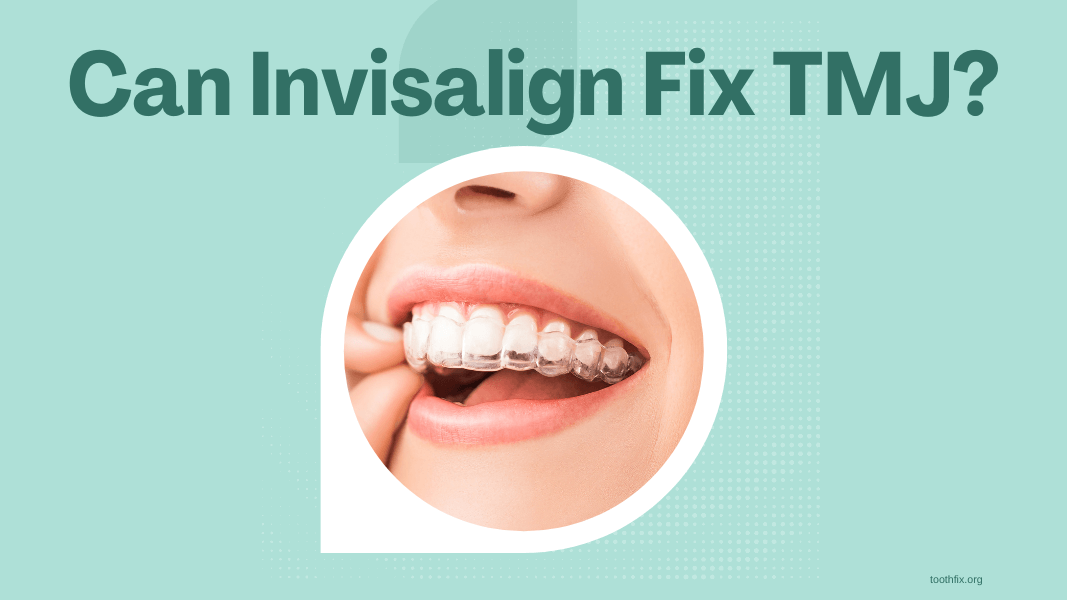
Temporomandibular Joint (TMJ) disorder is a complex condition that affects millions worldwide, manifesting as pain in the jaw joint and muscles controlling jaw movement. Its symptoms can be debilitating, including headaches, ear pain, stiffness, and difficulty chewing.
While the root causes of TMJ disorder vary, misalignment of the teeth, known as malocclusion, has been identified as a contributing factor.
This brings us to Invisalign, a modern approach to tmj orthodontics renowned for straightening teeth discreetly. But the burning question remains: Can Invisalign fix TMJ?
What is TMJ Disorder?
TMJ disorder, or temporomandibular joint disorder, affects the joint that connects the lower jaw (mandible) to the skull in front of the ears. This complex joint enables all movements associated with chewing, talking, and facial expressions.
Those suffering from TMJ disorder may experience a variety of symptoms, ranging from mild discomfort to severe pain.
How do you know if you have TMJ issues?
Common symptoms include jaw pain or tenderness, aching pain around and in the ear, difficulty or discomfort while chewing, locking of the joint, making it difficult to open or close the mouth, and a clicking or grating sensation when opening the mouth or chewing.
The exact cause of TMJ disorder can be difficult to determine. It may be due to several factors, including jaw injury, arthritis, genetic predisposition, infection, or the misalignment above of the teeth.
What is Invisalign?
Invisalign technology uses a series of clear, plastic aligners custom-made to fit over your teeth, gently and gradually moving them into their correct position. It’s a popular choice for those looking to correct dental issues without the visibility and restrictions of traditional braces.
The Connection Between TMJ and Misaligned Teeth
Misaligned teeth can contribute to TMJ disorders by creating an imbalance in the bite. This imbalance can lead to excessive strain on the jaw joints and muscles, potentially leading to TMJ symptoms.
Correcting the alignment of the teeth can play a critical role in alleviating this strain and reducing TMJ symptoms.
Can Invisalign Fix TMJ?
Yes, recent research and expert opinions suggest that Invisalign can be an effective treatment for TMJ disorders related to or exacerbated by misaligned teeth.
By addressing the underlying issue of dental alignment, Invisalign can help redistribute bite forces evenly, reducing stress on the TMJ and alleviating symptoms.
Real-life Experiences
Numerous case studies and patient testimonials have highlighted the effectiveness of Invisalign in treating TMJ disorders.
Following Invisalign treatment, individuals have reported significant reductions in jaw pain, headaches, and other TMJ-related symptoms.
Comparing Invisalign to Other TMJ Treatment Options
While Invisalign offers a promising solution for TMJ disorders caused by misalignment, comparing it to other treatment options is important.
Orthodontic treatments, splints or mouthguards, physical therapy, and surgery are other avenues for addressing TMJ disorders.
Each option has specific indications, and Invisalign stands out for its dual purpose of correcting dental alignment while potentially alleviating TMJ symptoms.
Do Braces Help TMJ?
Just as with Invisalign, traditional braces can also be a viable solution for TMJ disorders, particularly when misalignment or malocclusion is a contributing factor.
Braces work by applying continuous pressure over time to slowly move teeth into the correct alignment, potentially alleviating the imbalance causing strain on the TMJ.
However, the effectiveness of braces in treating TMJ disorders can vary significantly from one individual to another, depending on the specific causes and symptoms of their TMJ disorder.
Patients need to thoroughly examine and consult with an orthodontist experienced in TMJ issues to assess whether braces for TMJ are an appropriate treatment option for their particular case.
So, if you think can braces fix tmj, the answer is yes, but it may not be the most suitable option for everyone.
Tips for Finding a Qualified Provider
When considering Invisalign for TMJ treatment, consulting with a qualified and experienced provider is crucial. Look for orthodontists or dentists with a track record of successfully treating TMJ disorders with Invisalign.
They can provide a comprehensive evaluation to determine whether Invisalign is the right option for your situation.
Frequently Asked Question
Is There a Way to Permanently Fix TMJ?
Unfortunately, there is no one-size-fits-all solution that guarantees a permanent cure for all cases of TMJ disorders.
Treatment strategies often focus on relieving symptoms, improving function, and preventing further joint damage rather than offering a permanent fix.
However, certain interventions can lead to long-term symptom relief, including corrective dental treatments like Invisalign or braces, surgical procedures for severe cases, and lifestyle adjustments.
How Many Years Can TMJ Last?
The duration of TMJ disorders can vary widely among individuals, ranging from temporary discomfort to chronic conditions lasting many years.
Some people experience symptoms for a few weeks or months, which resolve spontaneously or with minimal treatment.
However, for others, TMJ can be a long-term issue that persists for several years or even becomes a constant challenge.
Conclusion
Invisalign holds significant potential in relieving individuals suffering from TMJ disorders related to dental misalignment.
By addressing the root cause of malocclusion, Invisalign can help alleviate the symptoms of TMJ, offering a path toward a straighter smile and a more comfortable daily life.
However, consulting with a professional is essential to determine if Invisalign is suitable for your TMJ treatment.



